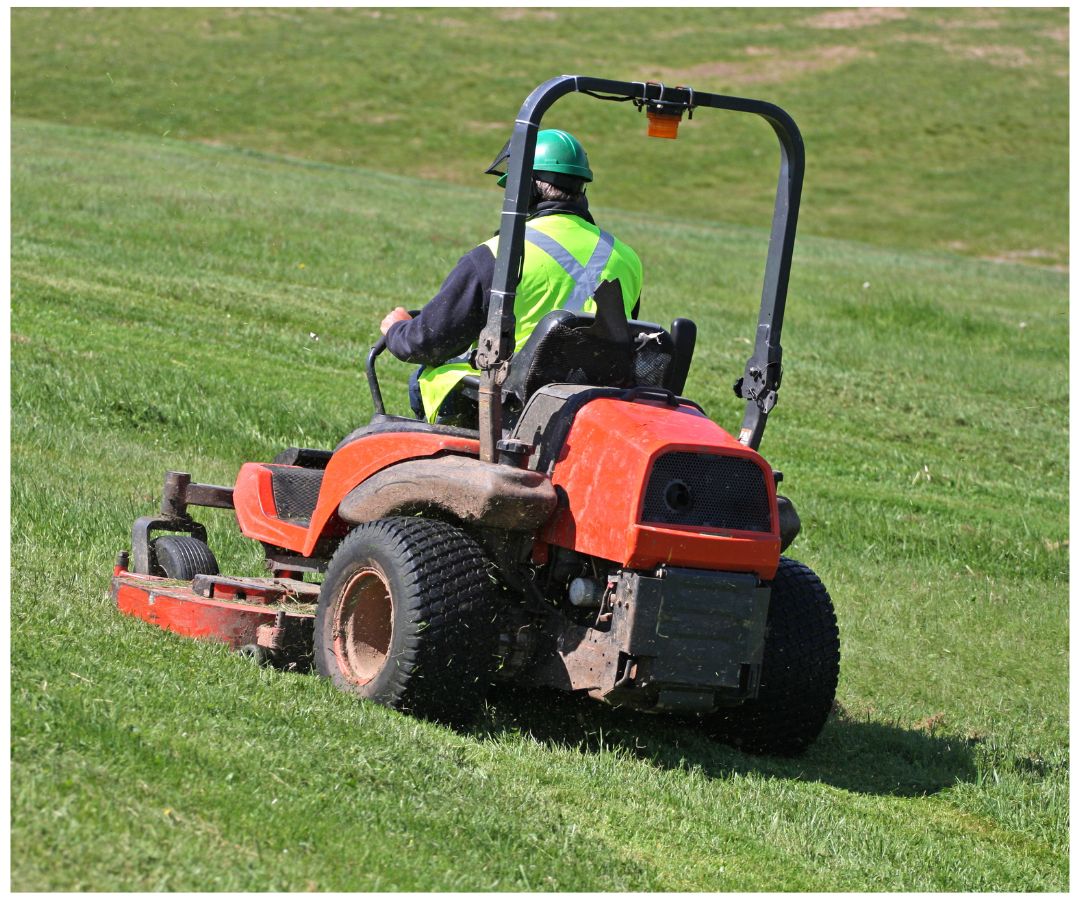As more schools embrace environmentally sensitive practices related to school maintenance, facility managers must consider not only the buildings they maintain but the land that makes up much of school campuses. Taking precautions for custodial and grounds staff treating lawns will help to prevent injuries and illnesses this season.
for custodial and grounds staff treating lawns will help to prevent injuries and illnesses this season.
Landscape maintenance is a critical part of your staff’s health and safety. Implement a pest management program (IPM) that uses a combination of strategies including biological, cultural, physical, mechanical, educational, and chemical to keep pest numbers at an acceptable level while causing minimal health impact to staff. Chemical fertilizers pose a health risk to facility staff during the application process. Alleviate the need for these by planting locally adapted or native plants. If that is not an option, prioritize using alternatives or organic fertilizers. Additionally, mulching or composting landscape waste reduces the need for fertilizers. Composting can take place onsite or be sent to a facility dedicated to composting organic materials.
When the application of pesticides is necessary, use the least toxic pesticides. They should have low to no acute or chronic toxicity to humans, affect a narrow range of species, and be formulated to be applied in a manner that limits exposure to humans and other non-target organisms. Conduct spot treatments when applying chemicals and only apply fertilizer to necessary areas. To best protect employees from this exposure, reference the Safety Data Sheet (SDS) for the chemicals you use, especially Section 4 (First Aid Measures) and Section 8 (Personal Protective Equipment).
No more than one-third of the length of the grass should be cut in one sitting. Monitor turf conditions and moisture levels when mowing to determine if aerating, nutrient feeding, or other measures are needed. Select turf-maintenance products that maximize the use of organic materials, including animal manures and compost. It is important to properly maintain mowing equipment so that it is manageable for staff, comfortable to operate, and limits personal exposure to things like noise and vibration. Broken or worn suspension components of riding lawnmowers can cause rough riding and bouncing during operation, contributing to back injuries.
All staff should use personal protective equipment (PPE) which should be worn to minimize exposure to possible hazards in the landscape management workplace. Be sure PPE conforms with the recommended safety compliance marking in the operator manual for any equipment that is used.
Safety glasses should be chosen to help protect eyes from both debris impact and dust. Mowers, trimmers, and blowers dislodge debris and propel the debris at high speed in several directions. Properly selected safety glasses are impact and dust resistant and will provide better protection than standard sunglasses or non-impact-resistant prescription eyeglasses. Face shields can also protect the face from flying debris. Face shields are used to protect the entire face and, in those cases, should be used in addition to safety glasses. Face shields are generally not a substitute for high-impact-resistant safety glasses.
Wearing earplugs or safety earmuffs is a good precaution when using mowers, trimmers, and blowers. This equipment exceeds daily permissible exposure limits (PEL) to sound. The loud and high-pitched engine noises can damage eardrums and cause hearing loss later in life.
In addition, be sure to protect staff from tick exposures. 2023 is predicted to be a bad year for ticks. Precautions should be taken to reduce the risk of tick bites, which can lead to Lyme disease. Cover all skin when working outside. Treat exposed skin with a DEET protectant, pretreat clothing with a permethrin product, and be sure to conduct a self-check for ticks after working outdoors.
For additional information on outdoor maintenance safety, please contact the Comp Alliance Director of Loss Control, Robert Blaisdell at This email address is being protected from spambots. You need JavaScript enabled to view it..

